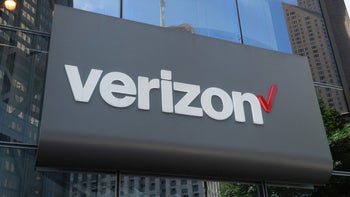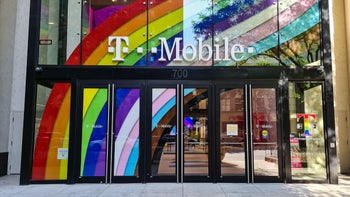AT&T makes the same demand as T-Mobile to restrict customer freedom

In July, the Federal Communications Commission (FCC) proposed a 60-day smartphone unlocking policy. The proposed rule was met with opposition by T-Mobile and AT&T. The latter now explains in a filing why it's against the policy.
Carriers in the US prevent you from switching to another provider if you purchase a phone through them until the eligibility criteria are met. Usually, you are required to pay off a device before you can put in a request for it to be unlocked. Some carriers like T-Mobile also require you to stay on its network for a certain number of days before letting you unlock a smartphone, regardless of whether it has been paid in full.
FCC has criticized the practice of locking customers into a service that doesn't meet their needs and believes that a 60-day unlocking policy will level the playing field for competition. The Commission says that with an unlocked phone, customers can choose the carrier that best serves them. It also says that the policy will reward the most innovative services.
On October 4, some AT&T execs met with FCC officials to explain why the proposed 60-day unlocking rule would be harmful to customers.
On October 4, some AT&T execs met with FCC officials to explain why the proposed 60-day unlocking rule would be harmful to customers.
In the meeting, AT&T reiterated that requiring providers to unlock handsets before they are paidoff would ultimately harm consumers by creating upward pressure on handset prices and disincentives to finance handsets on flexible terms. AT&T offers an array of affordable options for consumers to connect via a device that best suits their needs, including subsidized pricing and no interest financing.
AT&T, October 2024
The carrier offers subsidized pricing to its customers to make new phones easier on their wallets and it argues that locking a handset until it's paid off is not anticonsumer. That's because these unlocking terms make it possible for carriers to make devices affordable for all buyers.
AT&T warns that the proposed rules would impact its ability to offer discounted devices and this could affect low-income households the most. The carrier also cautions that a shorter unlocking period is likely to lead to fraud, trafficking, and price difference exploitation.
AT&T also says that the market is already fiercely competitive and the proposed rules are unlikely to increase competition by a measurable amount as unlocking will not undermine this competition.
Of course, the FCC cannot be dictated by any company and AT&T is well aware of that. The company has requested the Commission to take into account certain requests if it proceeds with the policy.
AT&T warns that the proposed rules would impact its ability to offer discounted devices and this could affect low-income households the most. The carrier also cautions that a shorter unlocking period is likely to lead to fraud, trafficking, and price difference exploitation.
AT&T also says that the market is already fiercely competitive and the proposed rules are unlikely to increase competition by a measurable amount as unlocking will not undermine this competition.
And lastly, the carrier believes that the "FCC may be overreaching its authority" by implementing such rules.
Of course, the FCC cannot be dictated by any company and AT&T is well aware of that. The company has requested the Commission to take into account certain requests if it proceeds with the policy.
AT&T says the existing contractual arrangements between customers and carriers should be honored and companies should have at least 180 days to detect fraud before unlocking a phone. The carrier has also requested the FCC to give carriers 24 months to impose any new rule.
T-Mobile had previously raised similar concerns. FCC had said that it was mindful of the potential impact of its proposed policy on low-income consumers.
Carriers like T-Mobile are pretty flexible as regards unlocking rules when it comes to getting deals approved. On the other hand, it's true that a 60-day unlocking policy would take away the incentive to offer the same lucrative deals as they do now. Perhaps the FCC and carriers could meet in the middle and agree upon an unlocking period that's longer than what the Commission is proposing but shorter than the average time it currently takes to unlock a phone.
T-Mobile had previously raised similar concerns. FCC had said that it was mindful of the potential impact of its proposed policy on low-income consumers.
Follow us on Google News













Things that are NOT allowed:
To help keep our community safe and free from spam, we apply temporary limits to newly created accounts: